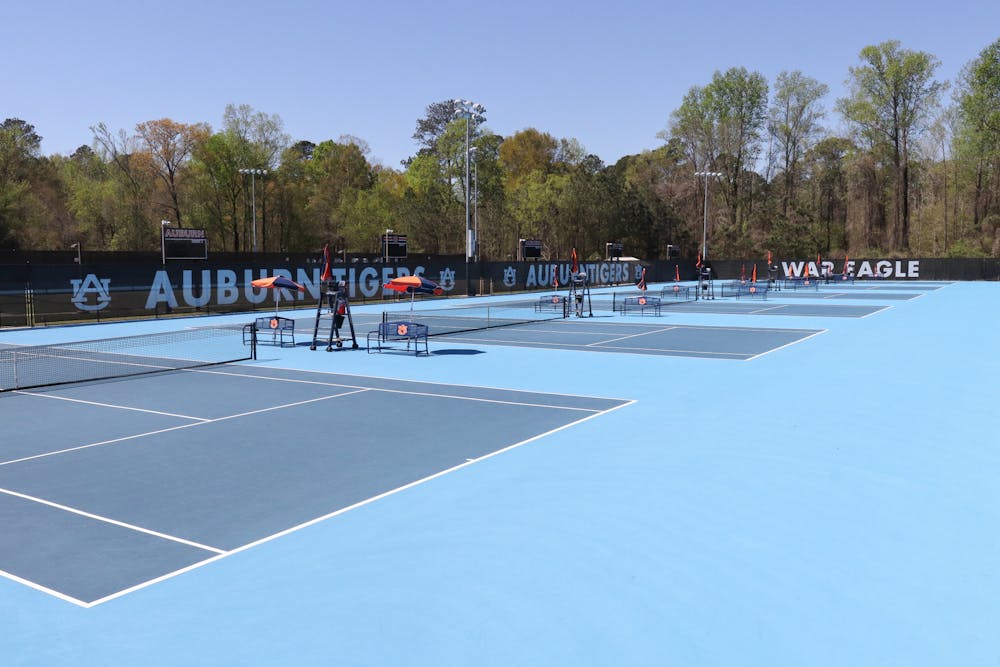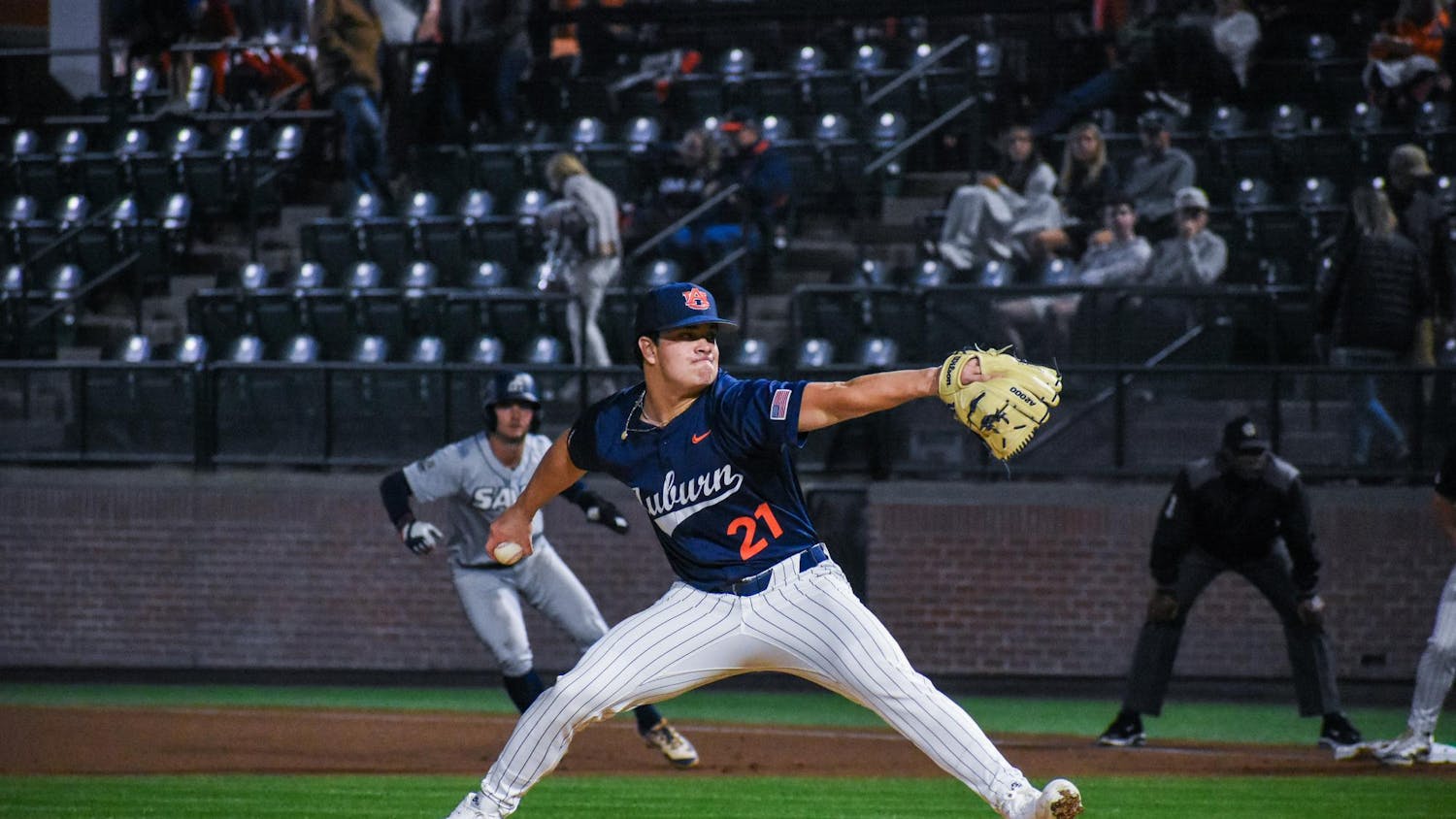On a windy Monday evening, Auburn’s Dream Court Chapter met at the Yarbrough Tennis Center for their weekly tennis practice.
Dream Court is an organization that provides adaptive tennis lessons for individuals with physical, developmental, or intellectual disabilities. The chapter meets every Monday from 6:00 p.m. to 7:00 p.m. in the spring.
Jessica Weyreuter is the founder and Executive Director of the Dream Court program. Dream Court first started in Montgomery, Alabama, in 2013. Present day, Dream Court has operated for 11 years and has multiple chapters across Alabama.
Jisung Choo, the Local Program Coordinator for Auburn’s Dream Court Chapter, helps ensure that practices are possible.
“I went over to Montgomery to volunteer, and I loved it (Dream Court),” Choo said. “So, I thought how great it would be to have it here (in Auburn).” This spring marks the second Dream Court tennis clinic for the Auburn Chapter; the first clinic was held last fall.
When approaching the courts, athletes and parents sign in and socialize with each other. Then, the athletes meet with their coaches to begin their tennis sessions.
Volunteers of all ages can coach Dream Court athletes. Tennis experience is not required, although it would be a bonus.
“The number one objective is to help athletes with disabilities feel included and accepted,” Choo said. “It is also about helping them develop self-pride and self-esteem as they improve in tennis little by little.”
Practice begins with athletes and coaches dispersing to courts based on skill-set experience. At each court, there is a coach leader who leads the practice. Athletes warm up with a bean bag toss game. Then, athletes work on volleys by trying to hit the ball in the air. After that, athletes move back a few steps from the net to work on either forehand or backhand strokes. At the end of practice, there are unified doubles matches. The coach and their athlete will play against another coach and their athlete.
As the clinic progresses, practice will challenge athletes. At the end of the day, the goal is to have the athletes play tennis with each other or against the coaches.
“Collaborating together to help others is another important aspect,” Choo said. “Dream Court is almost like a blended family.”
Parents of Dream Court athletes embrace what the program offers for their children.
Leah Eddins is the mother of Dream Court athlete Elizabeth Eddins. Elizabeth is a young third grade student with autism.
“We have loved it (Dream Court). We came here during the fall, and now we are here for the spring,” Leah Eddins said. “It is important to participate and learn new things, and she [Elizabeth] has learned so much about tennis. I really feel like they are teaching them about tennis and learning things.”
Charmoin Tatum and her 14-year-old daughter Leila Tatum are other individuals who enjoy what Dream Court has to offer. Lelia is in eighth grade and has Down Syndrome.
“She (Leila) was super excited to have this opportunity to play tennis,” Charmoin Tatum said. “The program almost provides one-on-one support. They meet the kids where they are, each kid individually, and it allows them to improve each week.”
Auburn’s Dream Court Chapter offers tennis practices in the spring until the end of April. A summer and fall schedule for athletes is to be determined.
“We have around 15 athletes,” Choo said. “Dream Court is still pretty new for Auburn, so I am hoping that we can have more and more athletes participate.”
The Auburn Dream Court chapter has room for growth in upcoming clinics, and the program fosters an undeniably fun, inclusive environment for all athletes.
Do you like this story? The Plainsman doesn't accept money from tuition or student fees, and we don't charge a subscription fee. But you can donate to support The Plainsman.





